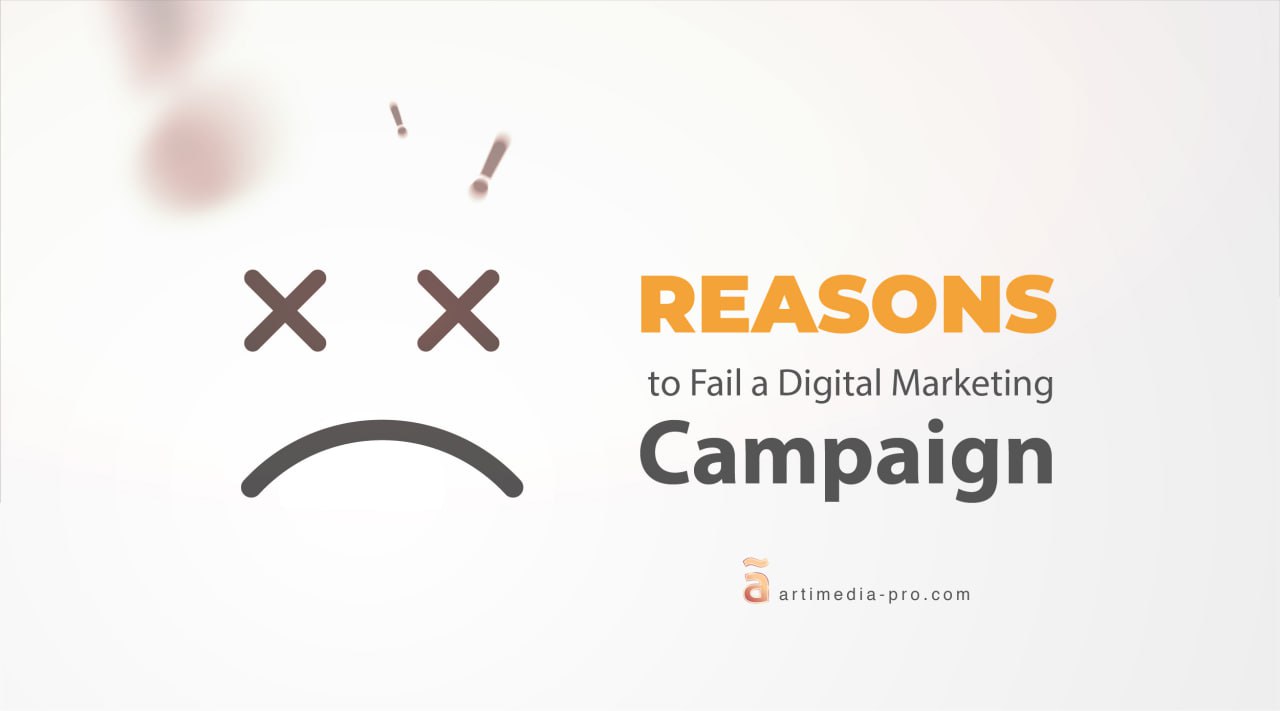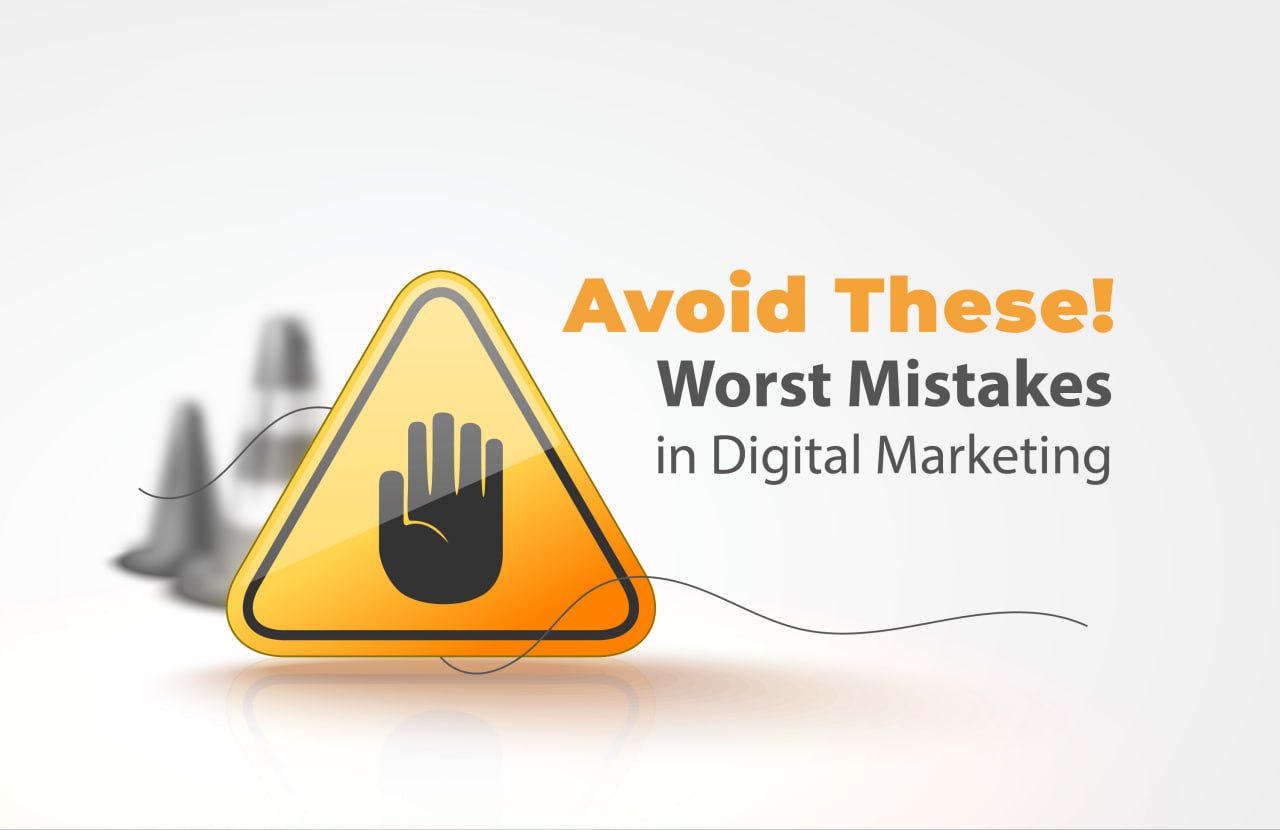![]()
You’ve built a great product and launched your business with high hopes. You’ve invested time and money into digital marketing, expecting a flood of new customers. But all you hear are crickets. The traffic isn’t coming, the leads aren’t converting, and you’re left wondering what went wrong. The reality is that the digital landscape is filled with potential missteps that can drain your budget and stall your growth before you even get started.
Many promising businesses in the MENA region and beyond falter not because of a bad product, but because of avoidable marketing errors. This guide will walk you through the most common mistakes in digital marketing. By understanding these pitfalls, you can steer your strategy in the right direction, optimize your spending, and finally achieve the results your business deserves.
1. Not Defining Your Target Audience
One of the most significant mistakes in digital marketing is trying to appeal to everyone. When you market to a broad, undefined audience, your message becomes diluted and fails to connect with anyone. It’s like shouting into a crowded room hoping someone will listen.
How to avoid it:
Start by creating detailed buyer personas. These are semi-fictional representations of your ideal customers based on market research and real data about your existing clients. Consider demographics like age and location, but also dig deeper into their psychographics: their goals, challenges, and motivations. For a startup in Syria, this could mean understanding if your customer values affordability, local support, or cutting-edge features. Once you know exactly who you’re talking to, you can tailor your messaging, content, and ad campaigns to resonate deeply with them.
2. Neglecting SEO Best Practices
Many businesses create a beautiful website but forget the most crucial step: optimizing it for search engines. Without a solid Search Engine Optimization (SEO) strategy, your website is nearly invisible to potential customers searching for your products or services. If you’re not on the first page of Google, you’re missing out on over 90% of web traffic for a given search.
How to avoid it:
Begin with keyword research to understand the terms your target audience is using. Integrate these keywords naturally into your website content, page titles, meta descriptions, and headings. Focus on creating high-quality, valuable content that answers your audience’s questions. Also, ensure your website is technically sound—it should be mobile-friendly, load quickly, and have a clear structure. Technical SEO can seem daunting, but it’s a foundational element of digital success.
3. Ignoring the Power of Content Marketing
Some entrepreneurs view content creation—like blogging or making videos—as an optional extra. This is a critical error. Content marketing is the engine that drives engagement, builds trust, and positions your brand as an authority in your industry. It’s not just about selling; it’s about providing value that draws customers to you. Businesses that blog consistently generate 67% more leads than those that don’t.
How to avoid it:
Develop a content strategy that aligns with your audience’s needs and your business goals. Plan a content calendar with topics that address your customers’ pain points. For example, if you run a project management tool, you could write articles on “How to Improve Team Productivity” or “Common Project Management Mistakes.” This not only helps your audience but also showcases your expertise. Consistency is key; aim to publish valuable content regularly to keep your audience engaged and improve your search rankings.

4. Setting Unrealistic Goals and Not Tracking Metrics
“We want to go viral” is a wish, not a strategy. Another common mistake in digital marketing is launching campaigns without clear, measurable goals. Without specific objectives, you have no way to know if your efforts are successful or where you need to make adjustments. You end up wasting money on activities that don’t contribute to your bottom line.
How to avoid it:
Set SMART goals: Specific, Measurable, Achievable, Relevant, and Time-bound. Instead of “get more followers,” a better goal would be “Increase Instagram followers by 15% in Q4 by posting three reels per week and engaging with 10 industry accounts daily.” Use tools like Google Analytics to track key performance indicators (KPIs) such as website traffic, conversion rates, and cost per acquisition. Regularly reviewing these metrics will give you the data needed to refine your strategy and maximize your return on investment.
5. Having an Inconsistent Brand Voice
Does your brand sound professional and serious on your website but casual and jokey on social media? This inconsistency confuses your audience and weakens your brand identity. A strong, consistent brand voice builds recognition and fosters a deeper connection with your customers. It’s what makes your brand memorable and distinct from competitors.
How to avoid it:
Create a simple brand style guide that outlines your tone of voice, personality, and messaging pillars. Is your brand an expert guide, a friendly companion, or an innovative leader? Define this and ensure everyone on your team—from social media managers to customer service reps—understands and applies it across all channels. This ensures a cohesive and professional experience for your audience at every touchpoint.
6. Overlooking Mobile Optimization
With the majority of internet users accessing websites from mobile devices, neglecting mobile optimization is a costly mistake. A non-mobile-friendly website drives visitors away and can harm your rankings on search engines.
How to avoid it:
Ensure your website uses responsive design and functions smoothly on smartphones and tablets. Test all key pages and forms regularly on different devices. Prioritize fast load times and user-friendly navigation specifically for mobile users.
7. Failing to Engage on Social Media
Some brands set up social media profiles but rarely post or interact with their audience. Without consistent engagement, you miss valuable opportunities to build relationships, collect feedback, and grow brand loyalty.
How to avoid it:
Choose social platforms where your target audience is active. Build a content calendar, schedule regular posts, and respond promptly to comments and messages. Use social listening tools to learn more about your customers’ needs and opinions.

8. Poor Budget Management
Misallocating your marketing budget can lead to overspending on ineffective channels or lacking resources for high-performing campaigns. This can stall your growth and leave you without meaningful results.
How to avoid it:
Regularly review campaign data and adjust your spending to focus on platforms and strategies delivering the best ROI. Avoid spreading your budget too thin—invest where real gains are demonstrated and don’t be afraid to reallocate funds as trends change.
9. Ignoring Customer Feedback
Customer reviews and feedback are crucial for refining your digital marketing strategy, yet many businesses overlook this goldmine of insight. When you disregard feedback, you lose touch with real customer needs and risk damaging your reputation.
How to avoid it:
Monitor review sites, social media, and customer surveys. Respond professionally to all feedback—positive or negative—and implement suggestions that align with your goals. Show customers you value their voice, and use their input to improve your products, services, and messaging.
Conclusion: Turn Mistakes into Momentum
Navigating the world of digital marketing can be complex, but avoiding these nine common mistakes is the first step toward building a powerful and effective online presence. By defining your audience, embracing SEO, creating valuable content, setting clear goals, maintaining a consistent brand voice, optimizing for mobile, engaging on social media, managing your budget wisely, and staying receptive to customer feedback, you create the foundation for sustained growth.
These aren’t just one-time fixes; they are ongoing practices that require attention and refinement. For busy entrepreneurs and project owners in the MENA region, managing all these moving parts can be overwhelming.
That’s where we can help. At Artimedia Pro, we specialize in crafting and executing digital marketing strategies that deliver real results. Let us handle the complexities so you can focus on what you do best—running your business.
Ready to transform your digital marketing? Explore our services and let’s build your success story together.
Frequently Asked Questions (FAQ)
Q1: What is the most common mistake in digital marketing for startups?
A1: The most common mistake is not having a clearly defined target audience. Many startups try to appeal to everyone, which leads to generic messaging and wasted ad spend. Focusing on a specific niche audience from the start is far more effective.
Q2: How much should a small business invest in digital marketing?
A2: There’s no one-size-fits-all answer, but a general rule of thumb is to allocate 5-10% of your total revenue to marketing. What’s most important is to start with a clear budget, track your return on investment, and scale your spending based on what proves effective.
Q3: Is SEO still important in 2025?
A3: Absolutely. SEO is more important than ever. With millions of businesses competing for attention online, appearing on the first page of search results is critical for visibility and lead generation. SEO is a long-term investment that provides sustainable organic traffic and builds brand credibility.
Q4: Can I do digital marketing myself or should I hire an agency?
A4: While you can manage some aspects of digital marketing yourself, it requires significant time, expertise, and continuous learning. Hiring a digital marketing agency like Artimedia Pro gives you access to a team of specialists, advanced tools, and proven strategies, often leading to faster and more substantial results. It allows you to focus on your core business operations.


